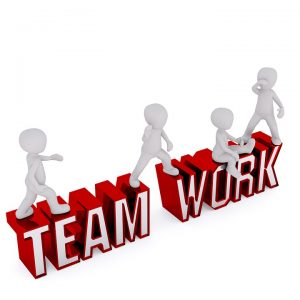I was reading my classmate Aaron Shin’s fourth blog and was very interested in his argument that anonymous peer evaluations are not a helpful as they are hurtful to improving performance. He points out that often people will change their behavior and focus not on working hard and trying to improve, but on how they can get higher marks from their group members. Thus, group members focus on themselves and how they can extract better review, and the group is less cohesive.

https://pixabay.com/p-2309036/?no_redirect
I have been in similar situations where I think that keeping my thoughts to myself would be better for my team marks. However, as we learned in class 2, an important part of teamwork is making sure feedback is rooted in good intention, and additionally, criticism and ideas are well communicated. I disagree that anonymous peer evaluations do not improve team efficiency and is an obstacle. I believe that a more overwhelming change other than pulling back efforts and communication, would be better and harder work and more contribution. When I know I will be judged on my performance, I will work harder to be a better teammate, including giving constructive criticism. With peer evaluations, members who put in more effort and contributions would be recognized and rewarded, and team members that do not will receive tangible feedback. If they are unhappy with the judgement, the specified suggestions from team members provide a helpful framework on how to improve (as they should be with good intentions) and motivate change and betterment. I think the negative effects of peer evaluations that Aaron cites are not systematic, but a consequence of poor communication. Although peer evaluations could initially cause problems in a team, I believe that they can greatly improve a team.
292 words